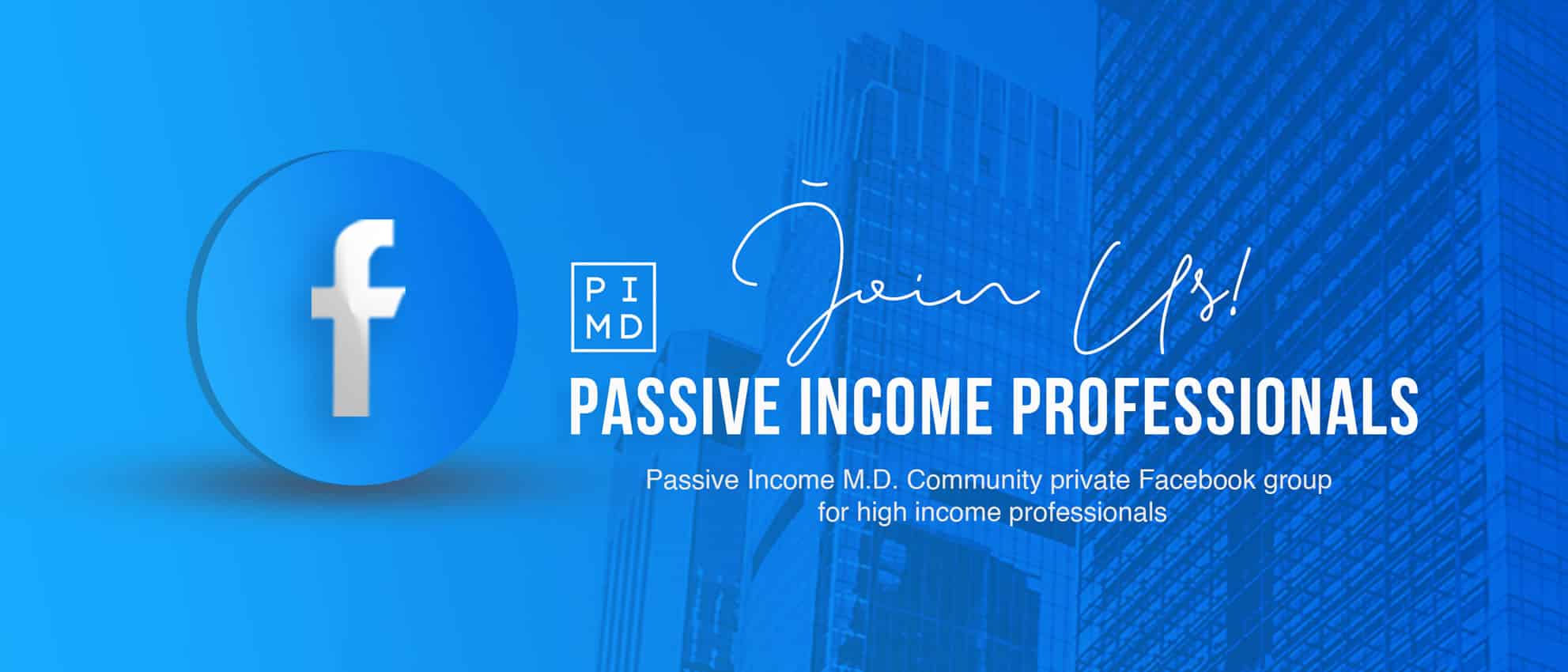
The Guide to Real Estate Syndications, Part II
This post may contain links from our sponsors. We provide you with accurate, reliable information. Learn more about how we make money and select our advertising partners.
In Part I of The Guide to Real Estate Syndications, we covered some of the basics of what a syndication is, who the players are, and how it’s structured. We even talked about some of the pros and cons of investing in syndications.
So if you haven't read Part I yet, I suggest you start there.
In the next couple of posts in this series, we’ll focus on how to go about vetting syndication opportunities.
The Importance of a Good Sponsor
When evaluating deals, there are two major parts to consider:
- The Sponsor
- The Deal
As you start looking at syndication deals, many will seem very similar in terms of numbers and projections. In fact, at times it seems like every deal is a good opportunity. An 8-10% return on my capital invested with nice lump sums along the way to double my money over 5-7 years? Sign me up. Well, wait a minute. Out of the myriad of sponsors, there’s no way that everyone can deliver on their promise.
The one thing I can tell you is that sponsors vary widely. There’s no guarantee that if you go with one particular sponsor the outcome of the deal will be perfect.
A good sponsor might be able to make any deal better, but a bad sponsor can definitely tank a good deal. A dishonest sponsor can absolutely crush a deal and your soul at the same time.
Since the sponsor is the one making all of the management decisions, it’s not good enough to just vet the deal. One needs to vet the sponsor as well. In some ways, evaluating the sponsor is more important than the actual deal. If you trust that the sponsor has significant expertise, makes good assumptions, and can manage things as well as they claim, then the specific property at hand matters less.
So let’s spend some time looking at the sponsor. As mentioned in my previous post, the sponsor might also be known as the terms operator, GP, or managing member.
What Does the Sponsor Do?
The sponsor is responsible for many aspects of what goes into a good real estate deal.
- Finds and sources deals
- Negotiates to put the deal under contract
- Does the due diligence on the property
- Puts together all the capital and financing
- Develops and executes a business plan
- Communicates with investors
- Oversees the operation and management of the asset
- Provides updates and financial reports
- Decides how and when the property will be sold
- Makes sure investors get paid
In short, the sponsor does everything that is needed to make the deal go well and make money for investors—and themselves—in the process. As an investor, your role is extremely limited, so once you’re in a deal, you simply need to trust that the sponsor is doing their job, wait for updates, and wait for capital distributions.
However, anytime you’re going to leave your hard-earned money in someone else’s care, you have to do a thorough vetting as best as you can.
How to Vet a Sponsor
What characteristics do you need in a sponsor?
- Honest
- Professional
- Experienced
- Detailed
- Diligent
Obviously, the best way to get to know a sponsor is through personal experience. However, oftentimes you won’t have that opportunity.
You may not know these things initially, so start by finding out as much as you can about the company itself, the team members, and their background.
Reputation
- Consider how you found out about them. How reputable is the source? It helps if you know someone who is experienced in these matters and has previous experience with that operator.
- If you discovered them on a crowdfunding website, what is their reputation for vetting projects?
Professional
- What is their marketing like? How are their paperwork and documentation? Does it seem professional? Do they seem well run?
- Look at their website. Just note however that this point isn’t always the best indicator because some of the most experienced firms don’t spend a lot of time on their websites since their investors know them.
Experience
- How long has the team been in place?
- How long have the principals been in real estate investing?
- How many assets have they acquired, do they currently own, manage, etc.?
- Have they gone through an up-and-down cycle? Did they go through the Great Recession in 2008?
- How familiar are they with the location?
Track Record
- Consider their previous performance including the number of deals and the number of closed deals. What was the projected vs. actual performance?
- Look at their current portfolio.
- It's normal to ask them directly about their experience and track record. Do not feel shy about asking for this. Operators should have information on previous properties, purchase and sale info, returns for the investors, etc. readily on hand. Look at returns to see where they’ve made money, but also look for losses. Ask them to explain their losses.
Leadership Team
- Take a good look at all the major players on their team.
- What do they do themselves, and what do they outsource?
- Google their names to search for any criminal history or financial background issues.
Co-Investment
- How much is the company putting into their deal? Investors often like to see that the sponsor is co-investing along with them and putting their own money at stake. Having skin in the game demonstrates that the sponsor has faith in the deal.
- Sponsors will usually put in 5-10% of the investment. However, you can imagine that if a sponsor is doing a good number of deals, putting 10% in every deal might be untenable. I like to see that 10%, but it’s not mandatory for me.
Sponsor Compensation and Fees
One way of vetting the sponsor is to see what kind of fees are part of their deal. When it comes down to it, sponsors usually require compensation in one of two ways:
- Compensation regardless of performance – encourages operators to just do more deals
- Performance-based compensation, another name for a “promote” or carried interest – feels more aligned, but also may encouraging risk-taking
There are pros and cons to both types. The goal is for the sponsors and investors to be as aligned as possible.
The fees are never completely uniform across deals from what I’ve seen. Sometimes the more experienced and best operators can charge the highest fees or promotes because they perform well.
This isn’t like the case of index funds where you want to pay the lowest fees for someone to mirror an index. This is active management and strategy. In this case, you often get what you pay for.
Again, standardization is nearly impossible, but the more deals you look at, the more comfortable you’ll be with comparing fees and determining what seems appropriate or excessive.
Here are some of the types of fees you might come across.
Acquisition or Organizational Fee
- Earned upon closing of the property. The justification for this fee is that sponsors will see many deals before closing and settling on one. They’ll have spent a significant amount of time and resources on evaluation and cost analysis at their own risk.
- Also, some of the performance or co-investment returns aren’t paid until the deal is closed, which could be 5-7 years down the road. It’s sometimes said that these fees keep the sponsor’s lights on.
- This fee is usually a small percentage of the purchase price of the property – typically 1-2%, but can be slightly higher for smaller deals because the overall dollar amount is lower.
Financing or Loan Fees
- Fees related to figuring out financing and refinancing
- Can be 0.5-1%
Equity or Equity Placement Fees
- Paid to an internal or external team for raising funds
- Usually 2-3%
Asset Management Fee
- To reimburse the sponsor for overseeing management and making sure they’re in line with their projections and business plan
- Usually 1-3%
Construction Fee
- Some sponsors charge this fee if the deal includes a significant amount of renovation or development. Sponsors spend a significant amount of time acting as project managers overseeing the contractors and vendors. I’ve seen this hover around 3-5% of hard construction costs.
Expense Reimbursements
- Simply reimbursement for expenses pre-paid by the sponsors
- Some examples are legal, due diligence including reports, etc.
Promote or Hurdles
- This is essentially a bonus for hitting certain incentives
- Example: 20% over an 8% IRR Hurdle and 35% over a 16% IRR Hurdle
- There might be incentive-based fee for hitting certain markers when they refinance. For example, if the sponsors hit a certain refinance amount and are able to get a significant amount of capital return for their investors, the sponsors might get a small bonus.
- Usually 1-2%
Disposition Fee
- For all of the work involved with selling the property
- Around 1%
Fees aren’t everything, but it’s important to take them into consideration to understand how the sponsor operates. Again, the lowest fees don’t always mean the best sponsor. It’s important to know what the fees are for. At the end of the day, I care more about net returns. If I’m happy with the returns, then the fees are just the cost of doing business.
Understanding fees vs. promotes will also give you a good idea of what the incentives are for the sponsor and how they operate.
Conservative Underwriting
Another thing you want to look for in a sponsor is conservative underwriting. It helps to first understand things like Internal Rate of Return and Equity Multiples. Ideally, you want someone who will under-promise and over-deliver. You don’t want the old bait and switch.
It’s great if sponsors can provide sensitivity tables or analysis. These are different models and projections that are affected by four key variables: vacancy, rent, interest rates, and cap rates. These variables can drastically change your returns. So it’s nice to look at how more conservative assumptions might affect returns, but also at the potential upside.
They say that with a great market and a great deal, everyone looks like a genius—more or less like most people who have made investments over the past 6-7 years. However, when a deal doesn’t turn out for the best or the market changes, it takes great management to get through those periods and stay on track.
How do you know if sponsors are making conservative underwriting assumptions? Well, it helps to dive into the deal and start looking at their assumptions. The more you look at them the better you'll get at recognizing when things don't quite make sense or add up.
Summary
In case it wasn’t already clear, there is a lot that goes into vetting and making a decision on what syndication is right for you. Hopefully this guide is making the process a litter easier.
Take time to vet the sponsor. Do not just jump into a deal because the numbers just look attractive.
Next in the series, we’ll look into the deals a bit and try to make sense of what you might see in a Private Placement Memorandum.
Disclaimer: The topic presented in this article is provided as general information and for educational purposes. It is not a substitute for professional advice. Accordingly, before taking action, consult with your team of professionals.



